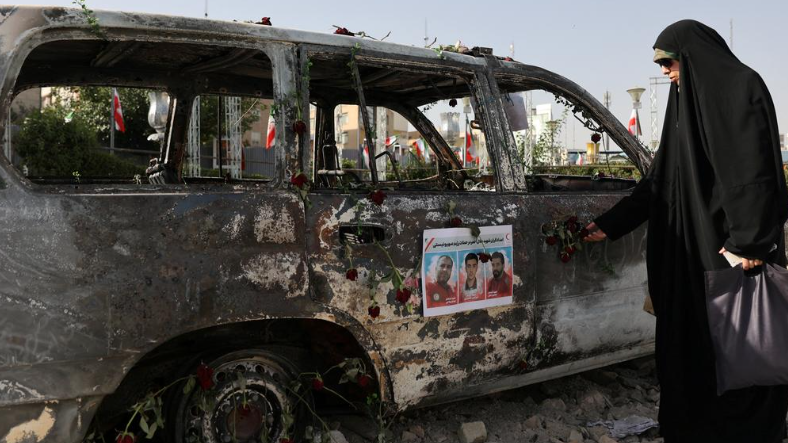

Washington/Tehran: President Donald Trump announced Monday that Israel and Iran have agreed to a "complete and total" ceasefire, claiming the agreement would bring an official end to what he termed the "12-day war." However, Iran's Foreign Minister quickly disputed the announcement, stating there is "no agreement" as of now on any ceasefire with Israel.
The conflicting statements emerged as violence continued to escalate across the region. Israel reported three people were killed by Iranian missile attacks, hours after Trump's ceasefire announcement, while heavy Israeli strikes continued to pummel Tehran and other Iranian cities throughout Tuesday morning.
The latest escalation began when Iran launched missiles at US military installations in Qatar and Iraq, retaliating against American strikes on Iranian nuclear facilities over the weekend. The primary target was Al Udeid Air Base in Qatar, one of the largest US military installations in West Asia.
Qatar's Foreign Ministry spokesman Majed al-Ansari confirmed the attack but reported no casualties, stating that Qatari air defenses successfully intercepted the incoming missiles. The Gulf nation condemned the strike on its territory while emphasizing that the missiles were neutralized before causing damage.
Iran justified the attack by claiming it matched the scale of US bombing of its nuclear sites, specifically targeting the military base because it was located outside populated civilian areas. This calculated response suggests Iran's attempt to limit civilian casualties while demonstrating its retaliatory capabilities.
The phased-in ceasefire would see Iran stop firing for 12 hours before Israel would do the same for another 12 hours, according to Trump's announcement on Truth Social. The president stated the 24-hour staggered ceasefire would begin at approximately midnight Tuesday Eastern Time, allowing both countries six hours to complete their "in progress, final missions."
Trump characterized the arrangement as bringing an "Official END" to the conflict, congratulating both nations and suggesting the war "could have gone on for years, and destroyed the entire Middle East."
However, neither Israeli nor Iranian officials immediately confirmed the agreement. The Israeli military declined to comment on Trump's statement, while Prime Minister Benjamin Netanyahu's office did not respond to requests for comment.
The conflict began 11 days ago when Israel launched targeted strikes against Iran's rapidly advancing nuclear program. Trump claimed Sunday that "Monumental Damage was done to all Nuclear sites in Iran," though US military officials stated that a complete battle damage assessment remains pending.
In response to the escalating situation, Iran's parliament has taken up legislation to end the country's ties with the International Atomic Energy Agency, potentially further complicating international oversight of its nuclear activities.
The sustained exchange of airstrikes has created a new reality for civilians in both Israel and Iran, who have endured nearly two weeks of conflict. The strikes have targeted military and nuclear facilities while both sides claim to avoid civilian areas, though the attacks have inevitably impacted urban populations.
As diplomatic uncertainty continues, the region remains on edge, with oil markets responding to the ongoing volatility and neighboring countries expressing concern about the broader implications of the Israel-Iran confrontation.